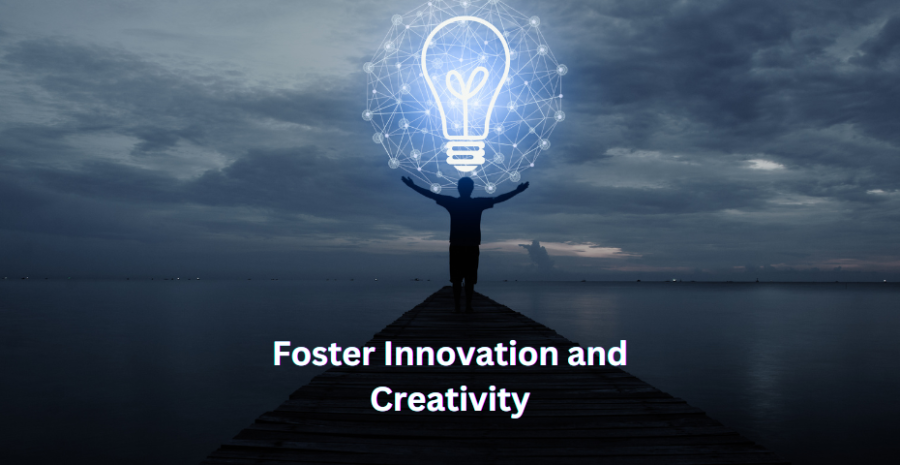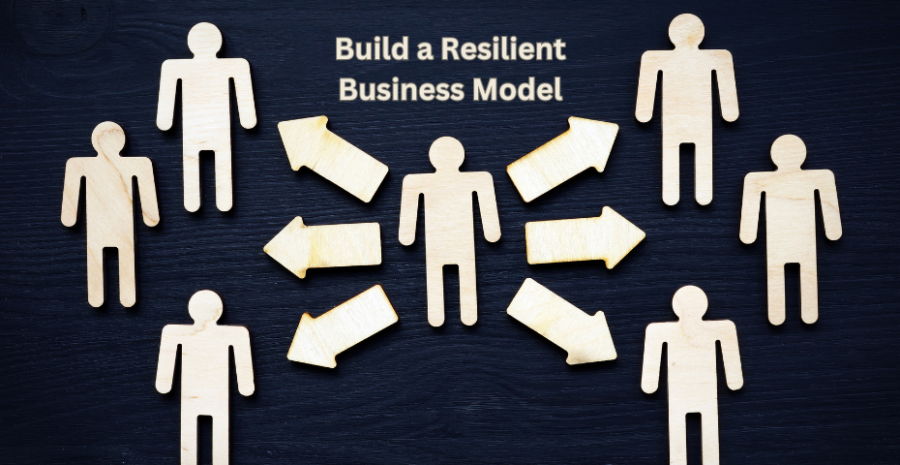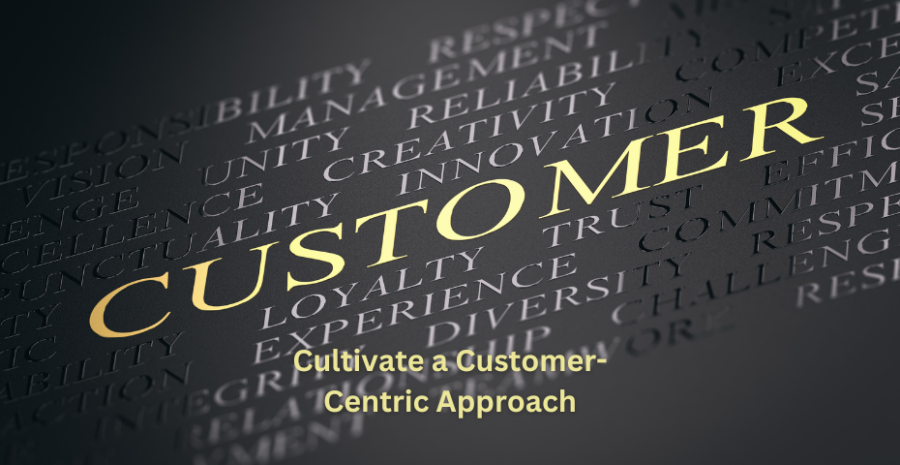

As an entrepreneur, your mindset plays a pivotal role in shaping the success of your business. Cultivating the right mindset not only enhances your personal growth but also transforms your sales and marketing strategies, ultimately elevating your business to new heights.
Here are ten key points to help you develop a success-oriented mindset and boost your entrepreneurial journey.
A growth mindset is the belief that your abilities and intelligence can be developed through dedication and hard work. This perspective fosters resilience and a love for learning, which are essential for entrepreneurial success. Embrace challenges, learn from criticism, and persist in the face of setbacks.
A growth mindset encourages you to view failures as opportunities for growth rather than as setbacks. This shift in perspective is crucial because it reduces the fear of failure, allowing you to take calculated risks and innovate.
By consistently seeking feedback and learning from both successes and failures, you can continuously improve your skills and strategies, leading to sustained business growth and success.

Setting clear, specific, and achievable goals gives you direction and purpose. These goals should be SMART: Specific, Measurable, Achievable, Relevant, and Time-bound. Clear goals help you stay focused and motivated, making it easier to track your progress and make necessary adjustments.
Breaking down long-term goals into smaller, manageable tasks can make them less overwhelming and more achievable. This approach allows you to celebrate small victories along the way, which can boost your motivation and confidence. Additionally, setting deadlines for these smaller tasks helps create a sense of urgency and accountability, keeping you on track and ensuring consistent progress toward your larger objectives.
Regularly reviewing and adjusting your goals is also crucial. The business environment is dynamic, and being flexible allows you to adapt to new challenges and opportunities. By periodically assessing your progress and making necessary adjustments, you can ensure that your goals remain relevant and aligned with your overall vision. This iterative process not only helps you stay focused but also enables you to refine your strategies for optimal results.
Self-discipline is the ability to control your impulses, emotions, and behaviors to achieve long-term goals. It is a critical component of a success-oriented mindset. Developing self-discipline helps you stay committed to your goals and resist the temptation to procrastinate.
Creating a daily routine and sticking to it is one of the most effective ways to cultivate self-discipline. A structured routine helps you prioritize tasks and allocate time efficiently, reducing the likelihood of distractions and procrastination. By establishing consistent habits, you can build momentum and maintain focus on your objectives, ensuring steady progress.
Setting priorities and focusing on high-impact tasks are essential for maximizing productivity. Self-discipline involves identifying the most important activities that will drive your business forward and dedicating your time and energy to those tasks. By using techniques like time-blocking, you can allocate specific periods for different activities, minimizing interruptions and enhancing your ability to concentrate on critical tasks. This focused approach not only boosts efficiency but also enhances your overall effectiveness as an entrepreneur.

Positive thinking helps you maintain a hopeful and optimistic outlook, which is crucial for overcoming challenges and achieving success. It involves focusing on solutions rather than problems and maintaining a positive attitude even in difficult situations.
Practicing gratitude and mindfulness are powerful tools for cultivating positive thinking. Taking time each day to reflect on what you are thankful for can shift your focus from negative thoughts to positive ones, boosting your overall well-being. Mindfulness practices, such as meditation or deep-breathing exercises, can help you stay present and calm, making it easier to handle stress and maintain a positive outlook.
Surrounding yourself with positive influences is another effective strategy. Engaging with supportive and encouraging people can reinforce your positive mindset and provide motivation during challenging times. Additionally, reframing negative thoughts into positive ones can transform your perspective.
Instead of dwelling on obstacles, focus on opportunities and solutions, which can lead to more innovative and effective problem-solving. This shift in mindset can significantly impact your entrepreneurial journey, fostering a more proactive and optimistic approach to business.
Effective communication is vital for building relationships, negotiating deals, and marketing your products or services. Strong communication skills help you convey your ideas clearly, listen actively, and connect with your audience.
Practicing active listening is a cornerstone of strong communication. It involves fully focusing on the speaker, understanding their message, and responding thoughtfully. This not only fosters mutual respect but also ensures that you are accurately addressing concerns and feedback. By honing your listening skills, you can build stronger relationships and create a more collaborative and supportive business environment.
Improving your public speaking skills can significantly enhance your ability to influence and persuade. Whether presenting to investors or speaking at industry events, being confident and clear in your delivery can leave a lasting impression. Additionally, using clear and concise language in all forms of communication, from emails to marketing materials, ensures that your message is easily understood and leaves no room for misinterpretation. Consistently working on these aspects of communication will help you build trust, inspire confidence, and drive your business forward.

Innovation and creativity are the driving forces behind successful entrepreneurship. They enable you to develop unique solutions, differentiate your business, and stay ahead of the competition. Encourage a culture of creativity within your team and be open to new ideas.
Allocating time for brainstorming and idea generation is a practical way to promote creativity. Regular brainstorming sessions can help you and your team think outside the box and explore new possibilities. Creating a safe environment where all ideas are welcome, without immediate judgment, can lead to breakthrough innovations. Encouraging diverse perspectives and cross-functional collaboration can also spark creativity and lead to more comprehensive and innovative solutions.
Encouraging experimentation and risk-taking is another critical aspect of fostering innovation. Allowing your team to test new ideas and learn from failures without fear of repercussions can lead to significant advancements. It's essential to view mistakes as learning opportunities and celebrate the innovative efforts, regardless of the outcome. This approach not only boosts morale but also cultivates a mindset that is always seeking improvement and new ways to achieve goals.
Staying informed about industry trends and advancements is crucial for continuous innovation. Keeping up-to-date with the latest technologies, market shifts, and consumer preferences can provide valuable insights and inspire new ideas. Attending industry conferences, participating in webinars, and subscribing to relevant publications can help you stay ahead of the curve. By combining this knowledge with a creative mindset, you can consistently introduce innovative products and services that meet the evolving needs of your customers and give your business a competitive edge.
A deep understanding of sales and marketing strategies is essential for attracting and retaining customers. This includes knowing your target audience, crafting compelling messages, and utilizing various marketing channels effectively.
Conducting comprehensive market research is the first step in developing effective sales and marketing strategies. Understanding your customers' needs, preferences, and behaviors allows you to tailor your products, services, and marketing efforts to meet their expectations. This data-driven approach enables you to create highly targeted campaigns that resonate with your audience, improving customer satisfaction and loyalty.
Developing a robust and consistent brand identity is another essential component. Your brand should clearly communicate your unique value proposition and connect emotionally with your target audience. Consistent branding across all marketing channels, including your website, social media, and advertising, helps build trust and recognition. A strong brand identity not only differentiates you from competitors but also fosters a loyal customer base.
Utilizing a mix of digital marketing techniques can significantly enhance your reach and effectiveness. Leveraging SEO, content marketing, social media, and email campaigns can attract a broader audience and drive engagement. Data-driven marketing, including the use of analytics and performance metrics, allows you to continually refine your strategies for better results. Techniques like A/B testing, segmentation, and personalization help optimize your marketing efforts, ensuring you reach the right audience with the right message at the right time.

A resilient business model is adaptable, scalable, and capable of withstanding market fluctuations. It involves having multiple revenue streams, a solid financial plan, and the ability to pivot when necessary.
Diversifying your product or service offerings is a key strategy for resilience. Relying on a single product or market can be risky, as changes in consumer preferences or market conditions can significantly impact your revenue. By offering a range of products or services, you can mitigate risk and capitalize on various revenue streams. This diversification allows your business to remain stable even when certain segments experience downturns.
Maintaining a healthy cash flow and managing expenses wisely are crucial components of a resilient business model. Effective financial management involves regular monitoring of cash flow, reducing unnecessary costs, and ensuring you have sufficient reserves to weather economic challenges. Implementing cost-control measures and investing in efficient processes can enhance your financial stability. Additionally, having access to emergency funds or lines of credit can provide a safety net during unforeseen circumstances, allowing your business to continue operations without significant disruption.
Staying flexible and open to change is vital for resilience. The ability to quickly adapt to new market trends, technological advancements, and customer demands can give your business a competitive edge. This requires a proactive approach to innovation and continuous improvement. Regularly assessing your business processes, seeking feedback from customers, and staying informed about industry developments can help you identify opportunities for growth and improvement. By fostering a culture of agility and adaptability, you can ensure your business remains robust and capable of thriving in any environment.
The business landscape is constantly evolving, and staying updated with the latest knowledge and skills is crucial for maintaining a competitive edge. Invest in your personal and professional development through courses, workshops, and networking events.
Investing in continuous learning and development is crucial for staying competitive and fostering personal and organizational growth. In today's fast-paced business environment, knowledge quickly becomes outdated, making ongoing education essential for adapting to new trends and technologies.
Setting aside dedicated time for learning is the first step. Whether through courses, workshops, or self-study, acquiring new skills and knowledge keeps you ahead of the curve. This proactive approach not only enhances your expertise but also allows you to innovate and implement best practices in your business.
Seeking mentorship and guidance from experienced entrepreneurs can provide invaluable insights and perspectives. Learning from their successes and failures can help you navigate challenges more effectively and make informed decisions. Mentors can also offer advice on strategy development, networking opportunities, and personal growth, accelerating your professional development.
Encouraging team development and training is equally important. Investing in your employees' skills and knowledge enhances their performance and job satisfaction, leading to higher productivity and retention rates. Providing opportunities for training and professional growth demonstrates your commitment to their success and fosters a culture of continuous improvement within your organization.
By prioritizing continuous learning and development, both personally and within your team, you can adapt to industry changes, innovate effectively, and position your business for long-term success in a competitive market.

Putting your customers at the center of your business strategy is key to long-term success. Understand their needs, preferences, and pain points, and tailor your offerings to provide exceptional value and experiences.
Cultivating a customer-centric approach is essential for building strong relationships, driving loyalty, and sustaining business growth. Putting your customers at the heart of your business strategy ensures that you consistently meet their needs and exceed their expectations, enhancing overall satisfaction and retention.
Gathering and acting on customer feedback is a fundamental practice. Understanding their preferences, pain points, and evolving expectations allows you to tailor your products or services accordingly. Implementing feedback loops through surveys, focus groups, or social media engagements demonstrates your commitment to listening and responding to your customers' voices.
Building strong relationships through excellent customer service is key to fostering loyalty. Providing timely responses, personalized interactions, and resolving issues promptly builds trust and enhances customer satisfaction. A positive customer experience not only encourages repeat business but also generates positive word-of-mouth referrals, which can significantly impact your brand reputation and acquisition efforts.
Continuously improving your products or services based on customer insights is critical for staying relevant and competitive. Regularly evaluating customer feedback, analyzing market trends, and anticipating future needs allows you to innovate and deliver value-added solutions. By prioritizing customer-centricity in all aspects of your business, you can differentiate yourself from competitors and create sustainable growth opportunities.
By adopting a customer-centric approach, you can create a positive impact on your business's reputation, customer loyalty, and overall success. Listening to your customers, delivering exceptional experiences, and consistently evolving to meet their needs will position your business as a trusted partner and industry leader.
Adopting a success-oriented mindset is a transformative journey that involves continuous growth, resilience, and adaptability. By embracing these ten principles, you can enhance your sales and marketing efforts, build a robust business model, and ultimately elevate your business as an entrepreneur.
Remember, the path to success is a marathon, not a sprint – stay committed, stay focused, and success will follow.
(1).jpg)
About: Andries vanTonder (65)
45 years selfemployed
He is a Serial Entrepreneur, an Enthusiastic supporter of Blockchain Technology and a Cryptocurrency Investor
Find me: Markethive Profile Page | My Twitter Account | My Instagram Acount | and my Facebook Profile.
